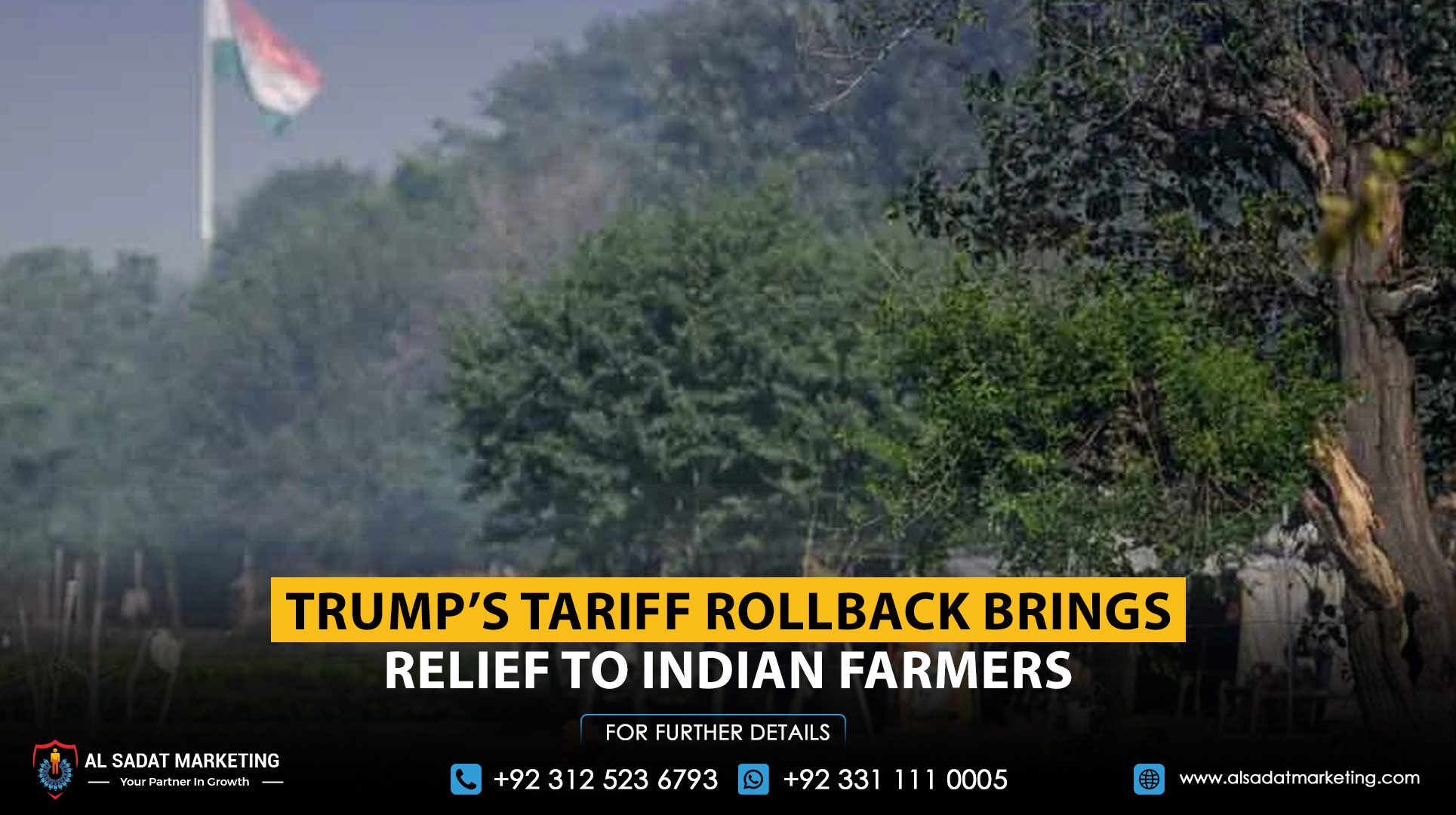Indian agricultural exporters are expected to gain from US President Donald Trump’s recent decision to remove tariffs on dozens of imported food items. The move comes as the US faces rising grocery prices and looks to ease the impact on consumers. Analysts say the tariff exemptions could help India recover some of its lost export demand after months of pressure from higher duties.
The US decision lifts tariffs on more than 200 food products, including beef. Indian exporters of tea, coffee, spices, and cashew nuts were among those most affected earlier this year when Trump doubled import duties on several Indian goods. The US also imposed a 25% levy on India’s Russian oil purchases from the end of August, adding further strain on trade ties.
Ajay Sahai, director general of the Federation of Indian Export Organisations (FIEO), said the tariff exemptions could benefit between $2.5 billion and $3 billion worth of Indian exports. He added that the change gives Indian exporters a chance to push premium and value-added products, which are more resilient to price competition.
Trade officials believe the exemptions could also send a positive signal for ongoing US–India trade talks. They say the decision may ease the pressure caused by earlier tariff hikes, which contributed to a nearly 12% drop in Indian exports to the US in September. India exported $5.43 billion worth of goods to the US that month, down sharply from last year.
Farm exports were among the hardest hit. India’s agricultural shipments to the US are valued at around $5.7 billion out of the country’s total $87 billion in exports to the American market in 2024.
A senior farm export official said the new tariff relief will help growers and exporters of tea, coffee, cashew nuts, fruits, and vegetables. However, analysts note that gains may remain limited because India has a smaller presence in many of the food categories included in the exemptions, such as tomatoes, citrus fruits, melons, bananas and fruit juices.
Ajay Srivastava of the Global Trade Research Initiative said India may see modest improvement in demand for spices and specialised horticulture products. He added that Latin American, African, and ASEAN countries are likely to benefit more because they export larger volumes of the exempted items.
Exporters in India remain cautious. They say rising freight costs, stronger competition from Vietnam and Indonesia, and tighter US quality standards may prevent full recovery, even with lower tariffs. One exporter noted that tariff cuts alone are not enough, stressing that better logistics and competitive pricing are still essential for growth in the US market.










